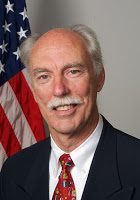A. Thomas McLellan, PhD, was recently reinstated as the CEO of the Treatment Research Institute after serving as the Senior Scientist and Deputy Director of the White House Office of National Drug Control Policy. The TRI is an independent, nonprofit research and development organization dedicated to developing and providing evidence-based solutions to the devastating problems of substance abuse that are affecting: families, schools, businesses, courts, and health care. Dr. McLellan co-founded TRI in 1992 and served as its Director until 2009 when he left to serve the White House.
Please take a moment to read McLellan’s informative words:
Substance abuse permeates nearly every aspect of our society, but it is not intractable nor is it inevitable.
Research has contributed much knowledge over the decades to smarter prevention of addiction, more efficient early interventions, better and more sustained treatment outcomes, and wiser policies. Now it’s time for research to transform all this knowledge into solutions to the many substance abuse issues confronting our society.
For example, parents want to learn how to prepare their children to turn away from drugs and how to get the best treatment when their adolescents need it. Doctors want to know how to detect and intervene when substance use is interfering with medical outcomes or to reduce early-onset alcohol and drug problems (both may be affecting the quality and costs of primary care). For schools and colleges, now (appropriately) focusing on improving student achievement and graduation, how can kids learn if they show up for class hungover or high? Courts and community corrections need research-derived solutions that can be more effective – and affordable – for managing drug-related offenders.
Science-backed tools are within our capabilities. Just from my group, there is a science-based tool for parents helping them, possibly, avoid the problems of a drug-involved child. In criminal justice, we have science-informed tools to help judges assign offenders based on the offenders’ risk and needs; or to evaluate “problem” courts to improve performance (ie, improve prospects for clients) and justify existence to higher-ups.
For treatment providers, we have introduced a helping tool teaching principles of relapse prevention in group therapy (research has said much about relapse prevention in substance abuse, a chronically relapsing disease). We have another tool for integrating continuous recovery management into regular treatment practice. For doctors, researchers at TRI are investigating new practices for conducting screening and brief interventions in medical settings.
There are other examples of science-based solutions, and not just from my group. But there need to be more. Science can point the way – for the many organizations, like schools, health care organizations, employers, parents, insurance companies – that need good, sensible and cost-effective tools helping them help people confronting substance use and abuse.
Drugs and alcohol aren’t going away anytime soon. There are many agencies at the federal, state and even local level that regularly, and helpfully, issue reports quantifying the problem. But we also need to develop solutions to the problem – in the form of tools that work, and work affordably. This may be another job that researchers can and should do.
In the meantime, substance abuse is hardly intractable. True, we need better awareness of the problem and all its impacts on society. But we also need more science-backed helping tools widely disseminated and put in the hands of the people and organizations that can use them.








